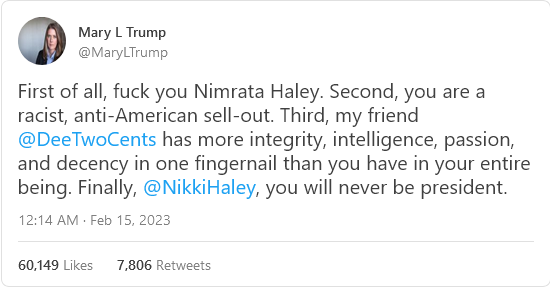I haven’t followed the TV series for a very long time (“my” Doctor was William Hartnell, then Patrick Troughton and by the time I watched another episode there’d been two more Doctors), but I still have fond memories of the show. Along comes Caroline Kaye to suggest that I was an unwitting victim of globalist propaganda:
The BBC science fiction television series Doctor Who has been a part of British popular culture since 1963. It is centred on the Doctor figure, a scientist who works to save civilisations, help people in need and to prevent evil forces from harming people. Remember that description.
A Doctor Who fanatic once told me that the “Who” of the Doctor’s name obliquely refers to the other WHO, the World Health Organisation. There appears to be something in this, however implausible. I find the strange coincidences between fiction and reality curious and uncanny.
The Doctor is a scientific adviser to the organisation UNIT, standing for United Nations Intelligence Unit, which happens to be based in Geneva, home of the WHO. UNIT has its military element in the form of “the brigadier” who liaises with the government and occasionally has to reach out to Geneva to “gain authority” when government does not co-operate.
The most famous Doctor Who monsters will always be the Daleks. In the story Genesis of the Daleks (1975), the Doctor’s nemesis is Davros, the creator of the Daleks. Davros sounds rather like Davos, the home of the World Economic Forum, the WEF.
In the story, the Doctor is tasked with preventing the creation of the Daleks and faces a moral dilemma when confronted with the means to destroy them. He ponders in a renowned scene, “Have I the right [to destroy them]?” Declining to destroy the Daleks, the Doctor escapes, and the Daleks continue on their path of evil.
Doctor Who‘s other famous monsters, the Cybermen, are cyborgs – amoral, unfeeling transhuman creatures of our nightmares; surely the creations of mad or evil persons. Yet the idea of cyborgs and transhumanism is being pushed enthusiastically by the WEF, inspired by the ideas of Yuval Noah Harari who sees human beings merely as “hackable animals” to be augmented as necessary.
The WHO acronym is the emblem of an organisation supposedly formed, like the Doctor, to help people and protect them. Instead, in the last three years we have seen, at the behest of the WHO, the poorest and weakest of the world economically hammered, a swathe of unnecessary deaths from a treatable coronavirus, worldwide harms and deaths through forced vaccination, all of which break every human right established in the wake of WWII. This is outlined in devastating detail by Toby Green and Thomas Fazi in their book, The Covid Consensus: The Global Assault on Democracy and the Poor – A Critique from the Left.
Now the WHO is preparing a new treaty which ultimately will result in signing member states becoming legally subordinate to the WHO. It is designed to subsume us all into a malleable collective. In other words, as per the sprawling EU project, our politicians will be able to blame the WHO for mandating medical treatments, lockdowns and prevention of travel, all of which could happen at the whim of the director general. Or more likely, its biggest, unelected, non-medically trained funder Bill Gates.






















